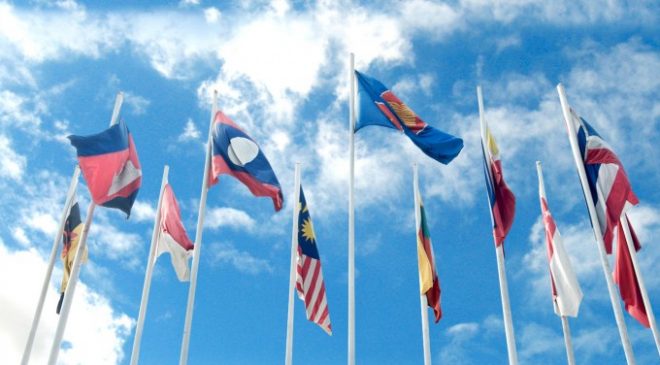
Additional obligations have been included in the RCEP agreement.
The Regional Comprehensive Economic Partnership (RCEP) Agreement is an agreement to broaden and deepen ASEAN’s engagement with Australia, China, Japan, Korea, and New Zealand. Together, these RCEP participating countries account for about 30 per cent of the global GDP and 30 per cent of the world population.
The objective of the RCEP Agreement is to establish a modern, comprehensive, high-quality, and mutually beneficial economic partnership that will facilitate the expansion of regional trade and investment and contribute to global economic growth and development.
The Annex on Telecommunications Services creates a framework of rules pertinent to trade in public telecommunications services.
While all existing ASEAN Plus One FTAs with individual partners include an Annex on Telecommunications Services, additional obligations have been included in the RCEP Agreement pertaining to:
- Approaches to regulation
- International submarine cable systems
- Unbundling of network elements
- Access to poles, ducts, and conduits
- International mobile roaming
- Flexibility in the choice of technology, among others.
These additional obligations aim to encourage greater cooperation towards strengthening the backbone of ICT infrastructure and supports and facilitates trade in services among the Parties.
Recognising the increasing digitalisation of trade, the Parties included a Chapter on Electronic Commerce (e-Commerce), which aims to promote e-commerce among the Parties and the wider use of e-commerce globally and enhance cooperation among the Parties. This Chapter sets out provisions that encourage the Parties to improve trade administration and processes by using electronic means.
This requires the Parties to adopt or maintain a legal framework which create a conducive environment for e-commerce development including protection of personal information of e-commerce users and provides protection for consumers using electronic commerce. The E-Commerce Chapter also addresses some data related issues, through provisions on location of computing facilities and cross-border transfer of information by electronic means.
The Parties also agreed to maintain the current practice of not imposing customs duties for electronic transmissions, in accordance with WTO Ministerial Decision. In the event of any differences in the interpretation and application of FINAL Page 8 of 10 this Chapter, the Parties agreed to first engage in consultations in good faith and make every effort to reach a mutually satisfactory solution.
This Chapter isn’t currently subject to Dispute Settlement, and the general review of the RCEP Agreement will review the application of Dispute Settlement to this Chapter.
Tags: ASEANe-commerceTelco




